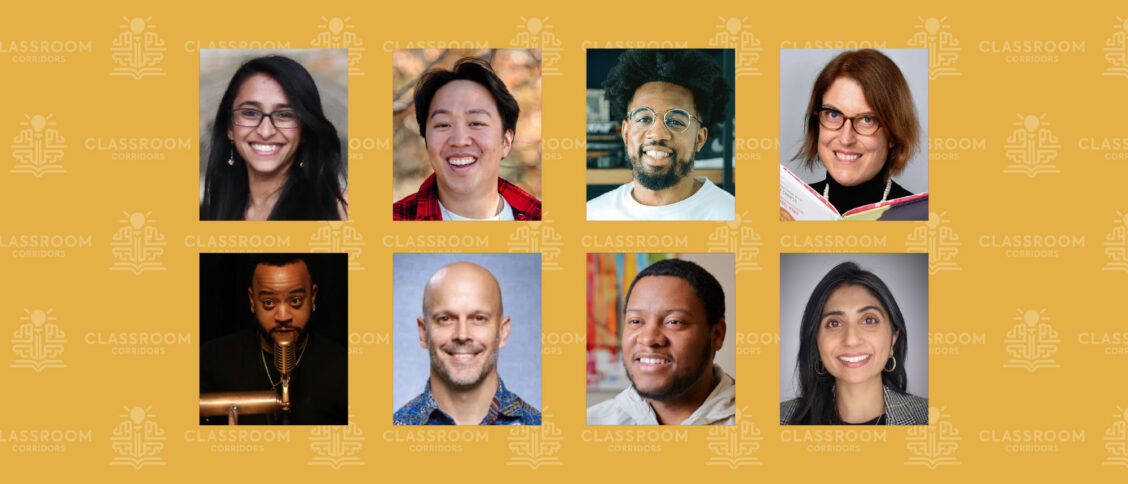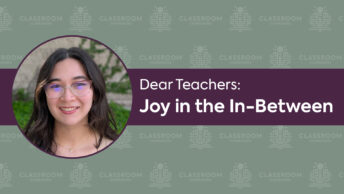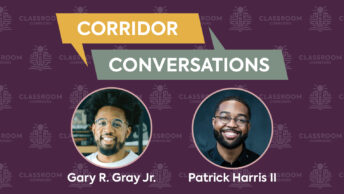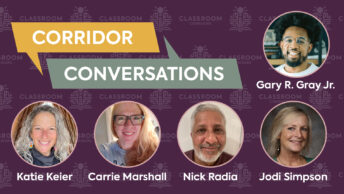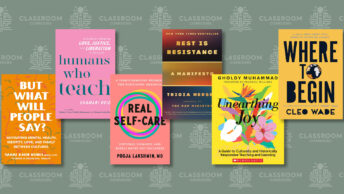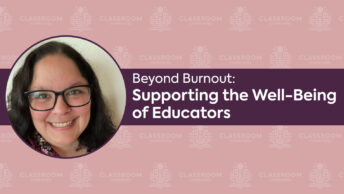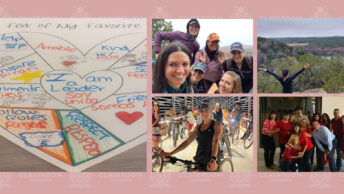We, as teachers, do a lot. Some days, it feels like the weight of the world is tucked into our lesson plans and stacked on our shoulders. We walk those hallways and step into classrooms offering our full self, mind, heart, soul, just to make sure our students are ready for the world ahead. Teaching is more than instruction and late-night grading. That’s why we asked teachers across the globe what they do to stay grounded, to stay whole. What follows is a patchwork of their truths; small practices, quiet rituals, everyday joys that help them hold on to themselves while giving so much to others.
Gary R. Gray Jr.
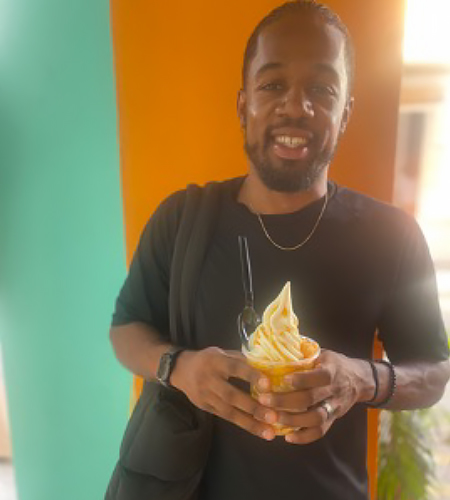
Well-being isn’t always about grand gestures or structured self-care. For me, it’s often found in the simplest routines, like going out for ice cream. The act itself is unremarkable: stepping outside, choosing a flavor, feeling the first cold bite dissolve into something sweet and familiar. But in that small moment, there’s a pause, a breath, a reminder that joy doesn’t have to be earned or complicated. It exists in the everyday, in the unhurried steps to the ice cream shop, in the way the world slows just enough to savor something fleeting. Sometimes, well-being is just that, an ordinary act made meaningful by the choice to enjoy it.
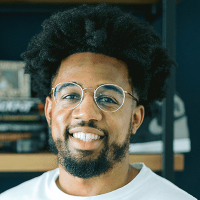
Gary R. Gray Jr. is a teacher and podcast host who is passionate about education and building strong classroom communities. In his work, he highlights the experiences of fellow educators, reflecting on the challenges of teaching during the COVID-19 pandemic and the importance of connection in learning. As an educator himself, Gary values collaboration, deep reflection, and fostering relationships that support both teachers and students. Through his podcast, he provides a platform for educators to share their stories and insights on creating meaningful learning experiences.
Tyler Simmons
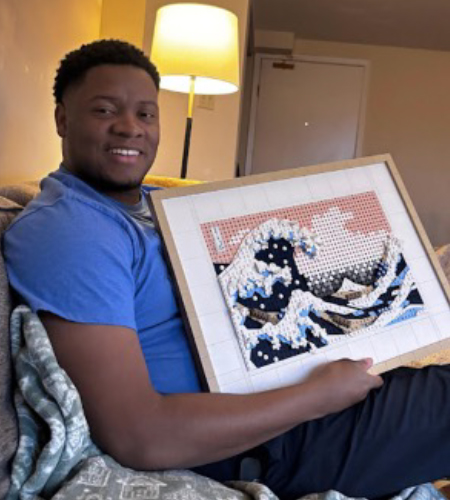
A big portion of my energy is planning for all my learners, finding ways to differentiate between the two grades and different learning styles for my students. It feels like my mind is always in planning mode and never has time to reset. One way I do self-care is by building Lego. This is a task where everything is already planned for me from the biggest piece to the littlest piece. This helps me fully relax.
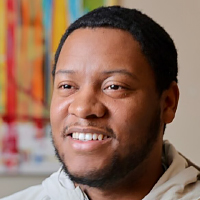
Tyler Simmons is a passionate grades 4–5 educator from North Preston, Nova Scotia, committed to empowering youth both in the classroom and on the field. Rooted in his community, Tyler uses education and sport as powerful tools to inspire confidence, build leadership, and nurture the next generation.
Gary Chu
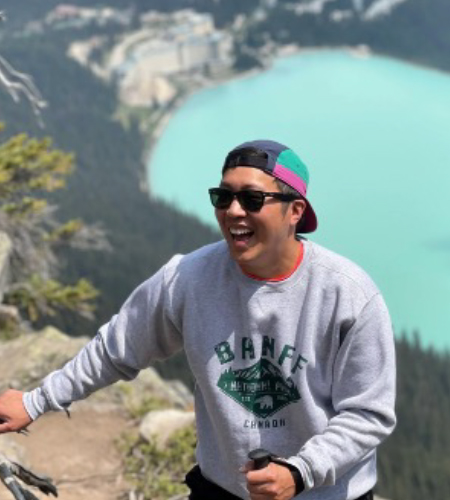
If you asked me to go on a hike a decade ago, I would have thought you were telling me to get lost. But now I have come to learn that it is one of the most enjoyable ways to tend to my well-being. As a seasoned secondary mathematics teacher who is currently out of the classroom coaching and evaluating new teachers, I find myself needing to take time to physically and mentally reset. There is something about the combination of movement, breathtaking views, and good company that grounds me. Each summer, I reunite with the same group of friends to take on a new national park, and those shared moments remind me to slow down, breathe deeply, and make space for joy. Prioritizing my well-being in this way helps me return to my work more present, reflective, and ready to support others with intention.
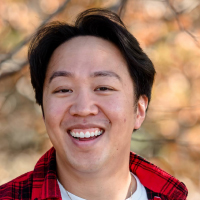
Gary Chu is a consulting teacher who coaches and evaluates first- and second-year educators across his school district, supporting both brand-new teachers and seasoned veterans new to the community. This is his first year in the role, with his previous 13 years spent as a high school mathematics teacher. His interests and work center radical liberation, humanizing learning, and building collective spaces for growth. He holds an MS in mathematics, secondary education, and an MA in curriculum and instruction. Outside of work, Gary is married and a dad to a one-year-old and two rescue dogs. He finds joy in learning through food, seeing it as a sensory gateway into culture, history, and connection.
Darren Radu
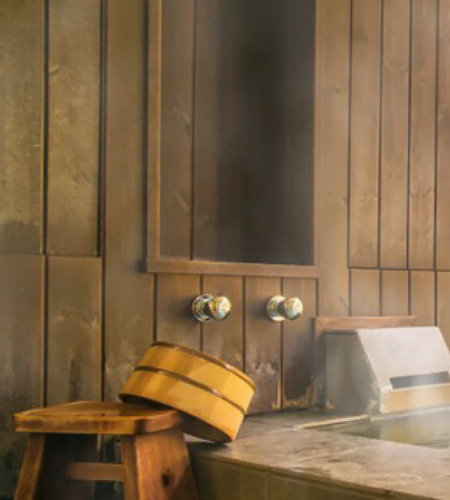
Ofuro Wellness
Being well means stepping back, shutting off, and sitting down.
It’s about ritual. Sitting low on the stool, first step is to fill the small basin to the rim with hot water. Once filled, hold it up overhead and shock the system with a splash. Lather up, make sure to rinse. No soap allowed in these tubs.
Once clean, hit the sauna. Get the core temp up, then cold plunge. Shock the system into waking up and cooling off. Cold pool > hot pool, tingle of cold to hot. Rinse, repeat, rinse, repeat.
I never regret these trips to the bath. Ritual, wellness, time to myself, or not, to shoot the breeze. Unplugged and unfettered with responsibilities, this is me time.
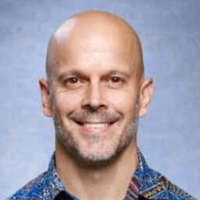
Darren Radu co-conspires with third graders on the daily. They help keep him well (and feeling young). He’s been teaching third, fourth, and fifth grades for a long, long time and is originally from Canada with stops in Seattle (USA), Accrea (Ghana), and Hanoi (Vietnam) along the way.
Neha Sobti

I teach undergraduates and graduate students who are future or current educational practitioners or policymakers. Lately, my self-care practice looks like reminding myself I can move at a slower pace than I’m used to, even to a point of a bit of discomfort. I want to get used to the idea that quiet, long periods of time, where I have nothing urgent to complete, and can just be, are actually healing and not scary. If I learn to lean in, of course. I’ve been taking lots of breaks in between work sessions, to go outside and take a walk or just cook myself a delicious meal. And I’m prioritizing relationships more, with my family, with my husband, and with my chosen family. I’ve learned that the strength of our relationships is so important, so we can thrive in this life, movement, and for generations to come.

Neha Sobti is a restorative justice practitioner, scholar and poet. She supports educators and leaders in creating school communities grounded in relationships, healing, care, and culturally sustaining practices. Currently she serves as a district administrator in New York City. In the fall, she will join the Department of Education Leadership and Policy at Hofstra University as an assistant professor. Her research interests focus on understanding and disrupting anti-Black racism in school discipline policy and practice.
Carolyn Jeziorski
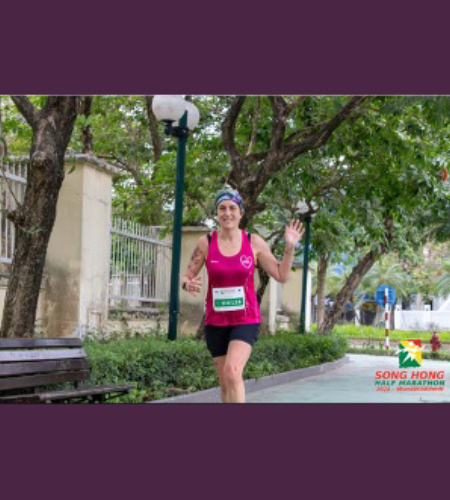
I work as an elementary school librarian in Hanoi, Vietnam. My job involves a lot of interaction with students, teachers, and the community. I often am working on several projects at one time. One way that I find calm and focus is through running. I try to run at least five times a week, early in the morning. My runs are a time for me to focus on breathing, taking one step at a time. Often during runs I will listen to podcasts or audiobooks, but I find that my mind also drifts to thinking about what I need to get done at work. By refocusing on timing my inhales and exhales to my footwork, I am able to be in the moment with the running, almost like meditation. When I have a week where I can’t run, I find myself to be restless and uneasy.
Knitting is another opportunity for me to find calm in my life. I started knitting over 20 years ago when I wanted something to do while watching TV. Since then, I discovered that knitting can calm and relax me on long haul flights back to visit family in the States. It takes my mind off how many hours are left to the flight, and I can see the progress I make on my project (usually socks for flights). Knitting for others also brings me joy, as the recipients of the gifts are always thankful and impressed with the work that went into the project. Again, knitting is almost meditative for me, as I could make stitches in a pattern and find calm in the repetition of the rows.
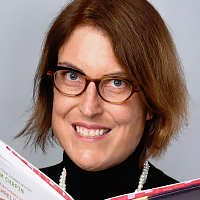
Carolyn Jeziorski is the elementary librarian at the United Nations International School of Hanoi. She has worked as a classroom teacher, curriculum director, and librarian at international schools in Japan, Egypt, Nigeria, China, and Vietnam since 2003. When she’s not reading a book, she enjoys distance running, knitting, traveling, and cuddling with her dogs.
Tarini Arte
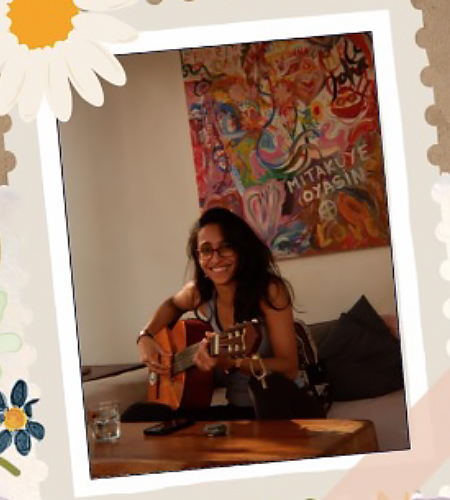
As the bell rings loud and the day winds down,
I trade my teacher shoes for sound—
Guitar in hand, the music flows,
A familiar rhythm my heart knows.
Or on the courts where tennis flies,
Beneath the breezy, open skies.
With friends who laugh—hearts so full,
These moments are what make me whole.
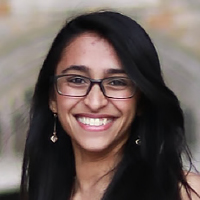
Tarini Arte is a grade 8 mathematics teacher at the International School Manila, Philippines. She strives to help students unearth their own purpose, to become their best selves, and to have the tenacity and skills to pursue the life they envision. She hopes to lead by example—living with passion, joy, and balance, and showing her students what it means to walk the talk every day.
Dr. Darius Phelps
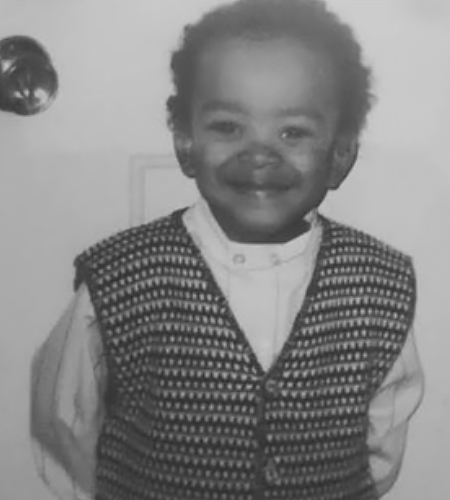
I teach writing and courses on belonging, racial literacy, and critical pedagogy. Most days, I find myself moving between lesson plans and conversations, weaving between research and reflection, holding space for my students to find their voices.
But when I sit down with a blank page—when the pen meets the quiet—the noise of the world softens, and the weight I carry lifts.
Each line I write, each image I chase, feels like breathing again.
Poetry is my reset, my renewal—a way to ground myself so I can return to my students fully present, fully human, and ready to meet them where they are, heart first.
Well-being is often framed around mindfulness, rest, and self-care—and while those are vital, for me, it’s also stitched into the quiet rituals of reading.
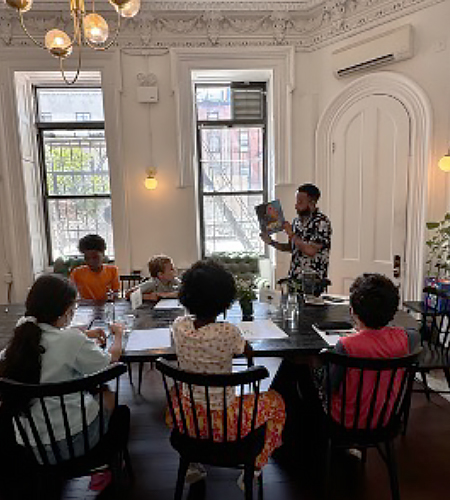
Sitting with a book, especially one worn at the edges, is more than just passing time; it’s a ceremony of memory, imagination, and healing.
There’s something sacred in the gathering—the slow turning of pages, the act of slipping between worlds, the way stories cradle our own unspoken truths. In these moments, reading becomes poetry—a grounding force, a reminder of who we are and who we might still become.
It’s where I return to myself, and where I remember that even in solitude, I am never truly alone.
Well-being is not always found in grand declarations or carefully mapped routines. It lives in the quiet insistence of our own breath, in the sacred act of speaking when silence was expected, in choosing to honor a moment simply because it asks to be witnessed.
To use your voice—to name your longing, your joy, your survival—is to carve a small sanctuary in a world that often demands forgetting.
Healing is not always a revolution of fire;
sometimes, it is the soft, steady choice to show up,
to tell your story even when your voice trembles,
to call your own name with tenderness.
My work reminds me daily: liberation begins not with the extraordinary, but with the ordinary made holy by attention, by breath, by voice. Well-being is the practice of returning to yourself, again and again, without apology.

Dr. Darius Phelps (he/him) is a poet, writer, and scholar whose work centers the liberatory possibilities of poetic inquiry, culturally responsive pedagogy, and critical literacy. A former elementary school teacher and now professor, he mentors preservice educators in reimagining classrooms as spaces of resistance, restoration, and radical love. His scholarship amplifies the voices of historically marginalized students, exploring how poetry can serve as both pedagogy and prophecy.
What you’ve just read isn’t a checklist; it’s a reminder. Well-being doesn’t wear one face, speak one language, or live in just one corner of the world. It’s personal. It’s yours to define, to protect, to return to when the days get heavy. As teachers, we often forget to center ourselves, but it’s these small moments that keep us whole. So pause. Breathe. And ask yourself: What do you do to stay well?

